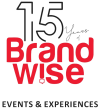Planning a corporate event can initially feel daunting, but it can also be an incredibly rewarding and empowering experience with the right approach. Whether organizing a small team-building retreat or a large-scale conference, the key to success lies in meticulous planning and execution. In this guide, we’ll walk you through the essentials to ensure your corporate event is successful and memorable for all attendees.
Understanding the Purpose of Your Event
Before diving into the logistics, it’s crucial to define the purpose of your event. Understanding why you are hosting the event will give you a sense of control and guide all your planning decisions.
Setting Clear Objectives
- Identify Goals: Are you looking to educate, motivate, or celebrate? Clearly defined goals will help shape the event’s agenda.
- Target Audience: Who will be? Tailoring the event to meet the needs and interests of the attendees. Your audience is essential.
Budgeting for Success
Creating a budget is one of the most critical steps in planning a corporate event. It sets the framework for all your decisions.
Key Budget Considerations
- Venue Costs: Research and compare different venues to find one that fits your budget and needs.
- Catering: Food and beverage can take up a significant portion of your budget. Consider dietary restrictions and preferences.
- Technology: Factor in costs for audio-visual equipment, Wi-Fi, and any other tech needs. Additionally, consider using event management software or apps to streamline planning and execution.
Marketing and Promotion: Allocate funds to promote your event through social media, email campaigns, or printed materials.
Choosing the Right Venue
The venue sets the tone for your event and can significantly impact its success.
Factors to Consider
- Location: Choose a venue that is easily accessible for your attendees.
- Capacity: Ensure the venue can comfortably accommodate your expected number of guests.
- Amenities: Look for venues that offer necessary amenities, such as parking, Wi-Fi, and catering services.
Popular Venue Options
- Hotels: Often equipped with meeting rooms and catering services.
- Conference Centers: Explicitly designed for corporate events, offering various room sizes and tech support.
- Outdoor Spaces: Great for team-building activities or casual gatherings.
Crafting an Engaging Agenda
An engaging agenda keeps attendees interested and ensures your event meets its objectives.
Structuring Your Agenda
- Opening Session: Start with a keynote speaker or an engaging activity to set the tone.
- Breakout Sessions: Offer smaller, focused sessions that allow for deeper discussions.
- Networking Opportunities: Include time for attendees to connect and build relationships.
Example Agenda Layout
- Registration and Welcome
- Keynote Address
- Breakout Sessions
- Lunch and Networking
- Panel Discussion
- Closing Remarks
Promoting Your Event
Effective promotion is critical to ensuring a good turnout.
Strategies for Promotion
- Email Campaigns: Send out invitations and reminders to your mailing list.
- Social Media: Utilize platforms like LinkedIn, Twitter, and Facebook to reach a broader audience.
- Event Websites: Create a dedicated page with all event details, including registration links.
Engaging Content Ideas
- Behind-the-Scenes Previews: Share sneak peeks of what attendees can expect.
- Speaker Spotlights: Highlight your speakers to generate interest.
Executing the Event
On the day of the event, execution is everything.
Day-of Checklist
- Arrival Time: Arrive early to oversee setup and ensure everything is in place.
- Staff Briefing: Ensure all staff and volunteers know their roles and responsibilities.
- Registration Desk: Set up a transparent and efficient registration process.
Handling Challenges
- Stay Flexible: Be prepared to adapt if things don’t go as planned.
- Communication: Keep lines of communication open among your team to address any issues quickly.
Gathering Feedback
After the event, gathering feedback is essential for continuous improvement.
Methods for Collecting Feedback
- Surveys: Send out post-event surveys to gather insights from attendees.
- Follow-Up Emails: Thank attendees and ask for their thoughts on the event.
Analyzing Feedback
- Identify Trends: Look for common themes in the feedback to understand what worked and what didn’t.
- Implement Changes: Use the feedback to improve future events.
Conclusion
Planning a successful corporate event requires careful consideration and attention to detail. By understanding your objectives, budgeting wisely, choosing the right venue, crafting an engaging agenda, promoting effectively, executing flawlessly, and gathering feedback, you can create an event that leaves a lasting impression. Consider incorporating sustainable practices, such as reducing waste and carbon emissions, to make your event more environmentally friendly.
Ready to start planning your next corporate event? Brandwise Events can help. Follow these steps to ensure success, and remember: the key to a memorable event lies in the details!
For more tips on corporate event planning, check out
[ www.brandwise.in ]
Author : ABISHEK R
Our Related Tags:
Corporate event management companies in Chennai | Event management companies in Chennai | Event management in Chennai | Top 10 event management companies in Chennai | Corporate Event Management Company | Best event management company in Chennai
